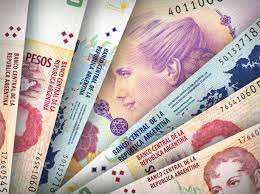
Argentine currency

02.12.2023
Argentine currency , Daily Current Affairs , RACE IAS : Best IAS Coaching in Lucknow
|
For Prelims: What is dollarization?,Important points,What is De-Dollarization For mains paper:Types of dollarization,Why dollarization?Importance of Dollarization,Criticism of Dollarization |
Why in the news?
The recent winner of Argentina's presidential election, Javier Meili, has attracted attention for his unorthodox policies by planning to replace the country's currency, the peso, with the dollar.
Important points:
- Three countries with fully dollar-based economies – Ecuador, Panama and El Salvador – have had successful economic outcomes following dollarization.
- The IMF found in the year 2022 that central banks around the world are not holding the same amount of reserves in US dollars as they did earlier.
What is dollarization?
- Dollarization is the term used when the US dollar is used in addition to or in place of another country's domestic currency. This is an example of currency substitution.
- This occurs in developing countries with weak central monetary authorities or unstable economic environments.
- This usually happens when a country's currency becomes unstable or loses its value due to high inflation or other economic problems.
- This may take the form of official monetary policy or actual market processes.
- Dollarization can have both benefits and costs. This generally results in increased monetary and economic stability, but it also inevitably involves a loss of economic autonomy in monetary policy.
Types of dollarization:
There are mainly 3 types of dollarization that countries can adopt.
- Informal dollarization: Informal dollarization occurs when people hold most of their financial wealth in foreign assets, even if the foreign currency is not legal tender.
- Semi-official dollarization: Under semi-official dollarization, the foreign currency is legal tender and may even dominate bank deposits, but the domestic currency is used in paying wages, taxes, and everyday expenses such as grocery and electricity bills. Plays a secondary role compared to.
- Official/Full Dollarization: Official dollarization, also known as full dollarization, occurs when a foreign currency receives special or major status as full legal tender. This means that the foreign currency is not only legal for use in contracts between private parties, but is also used in government payments.
Why dollarization?
- The main reason for dollarization is to gain the benefit of greater stability in the value of a currency compared to a country's domestic currency.
- For example, citizens of a country within an economy that is undergoing rampant inflation may choose to use the US dollar for day-to-day transactions, due to inflation causing the purchasing power of their home currency to decline. will be reduced
- If the domestic currency is replaced by the dollar, the theory is that the money supply can no longer be controlled by vested political interests that can increase spending for political purposes.
- The continued rise in prices will be forced to taper off as consumers will no longer be able to easily access the currency, slowing consumption demand.
- Another reason for dollarization is that the country gives up some of its ability to influence its economy through monetary policy by adjusting its money supply. The country creating the dollar effectively outsources its monetary policy to the US Federal Reserve.
- This may be a negative factor, to the extent that US long-term monetary policy is set in the interests of the US economy, and not in the interests of dollarized countries.
Importance of Dollarization:
- Less devaluation and instability: It can reduce inflation rates and stabilize prices, as the dollar is less prone to devaluation and instability than the domestic currency.
- Increase in investment: This can avoid currency crises, which reduces the sovereign risk premium and lowers interest rates, leading to higher investment and growth.
- Increase in trade: It can facilitate trade and integration with international markets, as the dollar is stronger and more widely accepted than the domestic currency.
- Increase in FDI: It can encourage foreign direct investment (FDI).
- Competitive financial system: This can promote fiscal discipline and a competitive financial system, as governments and banks cannot rely on printing money to cover their deficits or bailouts.
- Reduction of speculative risks: Dollarization can reduce speculative risks associated with fluctuations in exchange rates.
Criticism of Dollarization:
- Policy constraints: Dollarization significantly limits a country's ability to manage monetary policy independently.
- Monetary autonomy: This may reduce the country's monetary autonomy, meaning it cannot adjust its money supply or interest rates according to its economic needs.
- Seigniorage: This may lead to lost revenue generated from currency issuance.
- The term seigniorage refers to the profit that a government or central bank makes by issuing money.
- Public support: The country may face a loss of public support or legitimacy, especially if the dollar decision is perceived to be imposed by outside forces or interests.
- Foreign influence: This may increase the country's sensitivity to foreign influence and external shocks, as it depends on US monetary policy and the availability of dollars.
- Liquidity crisis: This can impair the ability of the lender of last resort to provide emergency liquidity to the financial system in times of crisis.
What is De-Dollarization:
- De-dollarization refers to a process intentionally or unintentionally undertaken by a country or region to reduce its reliance on the US dollar in its financial system or economy.
- This may include various measures aimed at reducing the use of the dollar as a standard of transactions, reserves, trade or pricing of goods and services.
Reasons: Governments may attempt de-dollarization for a number of reasons, such as reducing the influence of US monetary policy, asserting economic sovereignty, reducing the effects of dollar fluctuations, or seeking greater freedom in global finance. to demand.